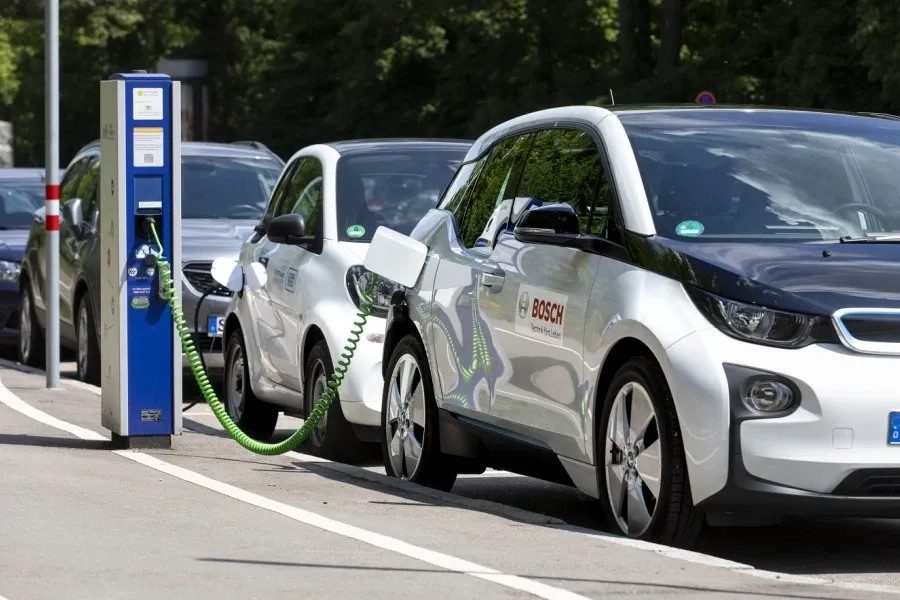Siemens Unveiled New Automotive Digital Twin Software
Siemens announced its new software solution that should ease digital twin set-ups for the automotive industry.

Stress makes cells age faster, even if they are electric-vehicle battery cells. The older the batteries get, the lower their performance and capacity, and the shorter the range of the vehicle. To help batteries last longer, Bosch is developing new cloud services that supplement the individual vehicles’ battery-management systems.
“Bosch is connecting electric-vehicle batteries with the cloud. Its data-based services mean we can substantially improve batteries’ performance and extend their service life,“ says Markus Heyn, member of the board of management of Robert Bosch. Smart software functions in the cloud continually analyze the battery status and take appropriate action to prevent or slow down cell aging. These measures can reduce the wear and tear on the battery, the most expensive component of an electric vehicle, by as much as 20 percent.
Real-time data gathered from the vehicle and its surroundings plays a key role here. The cloud services utilize this data to optimize every single recharging process and to provide drivers with tailored driving tips on how to conserve battery power via the dash display. Didi Chuxing, a globally leading mobility platform based in China, is working with Bosch to introduce Battery in the Cloud across DiDi’s electric vehicle fleet. The aim is to optimize battery performance, thus benefiting both drivers and fleet operators within DiDi’s ecosystem.
According to experts, the average service life of today’s lithium-ion batteries is 8-10 years or between 500 and 1,000 charge cycles. Battery makers usually guarantee mileage of between 100,000 and 160,000 kilometers. But rapid battery charging, high numbers of charge cycles, an overly sporty driving style, and extremely high or low ambient temperatures are all sources of stress for batteries, which makes them age faster. Bosch’s cloud-based services are designed to recognize and counter these stress triggers.
All battery-relevant data is first transmitted in real time to the cloud, where machine-learning algorithms evaluate the data. With these services, Bosch is not only offering a window into the battery’s current status at all times, but enabling a reliable forecast of a battery’s remaining service life and performance to be made for the first time. Previously, it was not possible to make any accurate forecast of how quickly an electric-vehicle battery would wear out.
Another feature of the smart software functions is their use of the swarm principle: the algorithms used for analysis evaluate data gathered from an entire fleet, not just from individual vehicles. Swarm intelligence is the key to identifying more of the stress factors for vehicle batteries, and to identifying them more quickly.
The new insights gained into a battery’s current status enable Bosch to also actively protect it against aging. Smart software in the cloud can calculate an individual charge curve for each recharging process, regardless of whether it takes place at home or elsewhere. This means the battery is recharged to the optimum level, helping conserve the cells. The Bosch solution is offering a specially developed recharging process as part of the company’s new battery services. They optimize both fast and slow charging and control electricity and voltage levels during the recharging process, thus prolonging battery life.